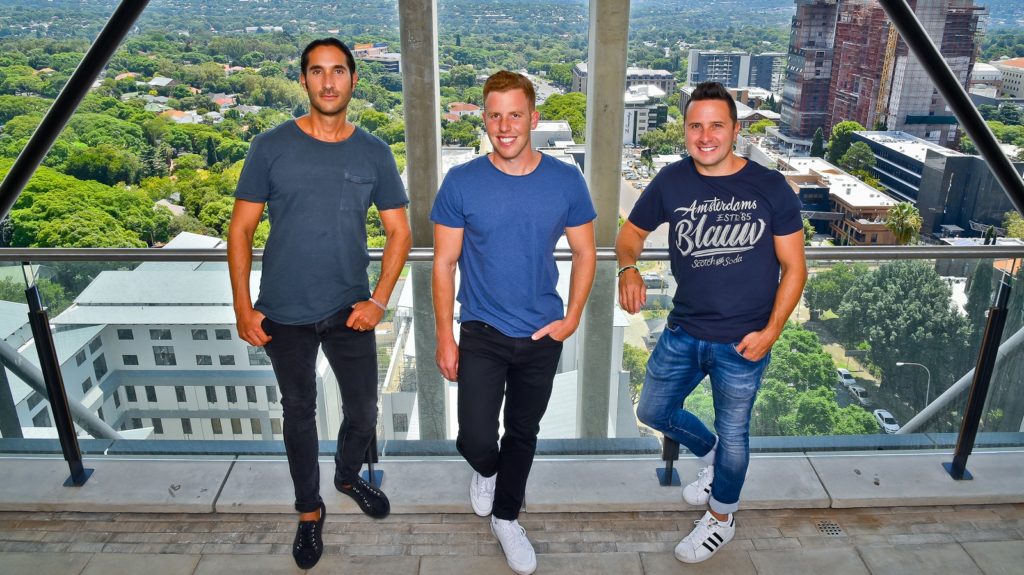Artificial Intelligence (AI) is no longer just a buzzword. It is embedded in everyday work, from drafting emails to automating entire workflows. For Memeburn’s…
No conflict of interest in SA startup Flow’s R20m deal, says venture capitalist

Kalon Venture Partners CEO Clive Butkow today said there was no conflict of interest in a R20-million deal involving proptech startup Flow that his venture capital (VC) company participated in. This, despite Flow CEO Gil Sperling being a board member of Butkow’s VC fund.
Kalon, which is a registered Section 12J VC company (VCC), has invested R10-million in the Johannesburg startup which has developed an app for the residential rental market. A US VC fund is due to commit the remaining R10-million in coming weeks.
Flow’s app allows tenants to get rewarded for things such as paying their rent on time and looking after their homes. Tenants get points every month that they can then use to access rewards from providers such as Superbalist, Weylandts, SweepSouth, OneCart, plus a selection of airtime and electricity providers.
The startup was founded by Sperling (pictured above, middle) Daniel Levy (above, right) and Jonathan Liebmann (above, left) in 2017. Sperling has a seat on Kalon’s board.
While a press release issued today by Flow made no mention of the fact that Sperling is a Kalon board member, Butkow said he is “comfortable” that his VC had put in place measures to ensure that there was no conflict of interest in the investment decision for Kalon’s fifth deal to date.
Kalon CEO Clive Butkow said he is ‘comfortable’ that his VC had put in place measures to ensure that there was no conflict of interest in the decision to invest in Flow
Butkow told Ventureburn that Sperling as well as all parties related to him (including Liebmann’s brother Nicholas) had recused themselves from investment committee meetings related to Flow.
In addition, Kalon had drawn up special terms that Butkow said are more thorough than the usual ones that his VC fund drafts for other investee companies.
Explaining how Kalon came to invest in Flow, he said the board had been looking specifically for a proptech startup to invest in and had looked at “five or six”, but that none had impressed them until they looked at Flow.
He added that even if Sperling hadn’t been a board member of Kalon, the VC would still have invested in Flow.
But he said while Kalon had consulted with various contacts in the Section 12J community, including legal counsel, it had not sought out the SA Revenue Service (Sars), under which the 12J incentive falls, for a tax directive.
Butkow pointed out that Kalon had in the past interacted with Sars for a tax directive but that it had often taken six months to get a directive from the tax agency. Critically, he said, Sars’s directives are non-binding, making it hardly worth the effort to apply for one.
‘Completely above board’
In a call today with Ventureburn, Sperling described the deal as “completely above board”. “I don’t see any sort of issue,” he added.
He said previous to Kalon’s investment, he and his co-founders had already invested several million rand of their own money in the startup as initial seed capital. He declined to reveal the exact amount.
He said Butkow had introduced him and his co-founders to members of the US VC fund, which he declined to name.
He expected the deal with the US VC to be finalised in the next few weeks, adding that a number of “minor” things in the shareholder agreement, mostly concerning governance issues such as who sits on the board, still need to be finalised.
Beta launch
He said the startup has been flying “under the radar” since the three launched the company in 2017, but pointed out that he and his co-founders held a beta launch of their app in September, in which the solution was trialed with 100 tenants.
The idea is to aim the app at tenants and that landlords will take it up subsequently when the app gains traction among tenants.
The startup wants to enable tenants to contact suppliers such as cleaners or handymen on the app and is already in talks with nine or 10 such organisations that offer these services — such as Kandua, a platform that allows traders and handymen to connect to those that need them and SweepSouth a platform that does the same, but for domestic workers.
Flow is initially aiming at smaller landlords in the residential property sector (that Sterling said typically manage between one and five properties), but wants to attract institutional landlords by enabling its app to integrate with enterprise software that such large landlords commonly use.
He said the company is expected to have five employees by next month and grow to about 18 to 20 employees by the end of the year. Further jobs could be created once these two services are up and running — likely later this year.
But why would Sperling and his co-founders bother to get an equity investor after Sperling in 2015 sold his former company Popimedia to French agency Publicis — which he started with Levy and Ryan Ryan Silberman in 2007 — for a reported R350-million (see this story)?
Sperling said he did the deal to allow Flow access to the networks that venture capitalists such as Butkow has access to, adding that if the company really needed the deal just for the money, it could’ve just taken out a bank loan.
Both Butkow and Sterling declined to reveal the equity stake that Kalon had taken in the startup.
‘Black startups in pipeline’
Meanwhile asked whether Kalon is seeking to back any black startups — which the country arguably needs more of, Butkow said while his VC does not discriminate between black or white entrepreneurs, his team is “actively sourcing” black entrepreneurs who have businesses requiring growth capital.
“As of today we have a few in the pipeline but most still need to find product market fit before we can make the investment. We are actively working with these entrepreneurs to help make them investor ready. It is also a point we discuss at every board meeting,” he added.
Featured image: Flow founders Jonathan Liebmann, Gil Sperling, Daniel Levy (Supplied)

